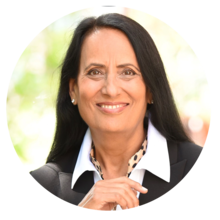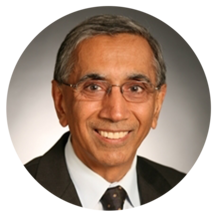About this Presentation
Get ready to hear about the experiences of a New Zealand non-government organization working in community social change. Vulnerable communities of South Auckland (SA) experience the poorest health and well-being outcomes of New Zealand (NZ). This community is made up of largely M?ori and Pacific peoples. Services cannot keep up with the ever-increasing health and well-being demands of communities with high needs. Established in 2016 TCC was born out of the need to overturn the persistent and undesirable experiences and outcomes of SA communities. TCC uses the tools of TOC to identify solutions to overcome the stable conditions that cause the SA communities UDE’s. However, the pre-requisite for solving the SA problems requires responsive sequential intersectoral community approaches. Although there has been some success over the past 6 years, there are many challenges applying the TOC to bring about social change. Challenges include; 1. Getting TCC into a position of influence; 2. Applying TOC to an open social systems environment; 3. Selling solutions to social problems; 4. The tendency of systems to maintain the status quo. Our success with TOC includes; 1. Injecting the cause-and-effect language into social settings and agencies; 2. Exposing the key peoples to TOC concepts and tools; 3. Selling a social wellbeing solution to workplaces.
What Will You Learn
To help you get the most value from this session, we’ve highlighted a few key points. These takeaways capture the main ideas and practical insights from the presentation, making it easier for you to review, reflect, and apply what you’ve learned.

Community regeneration is a crucial concept in mature communities where there is a need to support the community to create infrastructure and re-establish the neighbourhood or community feeling or cohesion.
Despite the provision of health services and promotions, there was a low impact on the health of communities in South Auckland, leading to a shift in focus from health to social determinants.
Feedback mechanisms in workplaces can improve communication and address issues, and cooperation between government and other social service agencies is vital to effect change.
Instructor(s)
James Heimuli
James Heimuli works as Cause-and-Effect Architect for a social change organization in South Auckland, New Zealand. He has completed the Blackbelt in Thinking course with Viago.

Ms Alka Wadhwa
Alka Wadhwa is an experienced consultant and process improvement expert with over 24 years of expertise in the Theory of Constraints (TOC), Lean Six Sigma, and organizational performance optimization. She has successfully led projects in healthcare, financial services, and manufacturing, driving significant improvements such as a 67% boost in hospital operations and a 140% increase in outpatient visits.
Previously, Alka Wadhwa spent 17+ years at GE Global Research Center, where she led initiatives to enhance various GE businesses through advanced technologies, process redesign, and system optimization. Founder of Better Solutions Consulting, LLC, she specializes in using TOC, Six Sigma, and data analytics to streamline operations and build high-performance teams.
Her work has earned her multiple accolades, including the Empire State Award of Excellence in healthcare.

Dr Gary Wadhwa
Dr. Gary Wadhwa is a Board Certified Oral & Maxillofacial Surgeon with extensive experience in the field. He completed his Oral & Maxillofacial Surgery training at Montefiore Hospital, Albert Einstein College of Medicine in Bronx, NY, and has served as an Attending at prestigious institutions like St. Peters Hospitals, Ellis Hospital, and Beth Israel Hospital in NY. With a career spanning over two decades, he was the former CEO and President of a group specialty practice in NY from 1994 to 2015. Dr. Wadhwa holds an MBA from UT at Knoxville, TN, and has undergone additional training in System Dynamics at MIT, Health System Management at Harvard Business School, and Entrepreneurship and healthcare innovations at Columbia Business School. Committed to expanding access to Oral & Maxillofacial Surgery care, he is currently engaged in a meaningful project to provide healthcare services to underserved populations in inner city and rural areas through non-profit Community Health Centers.
